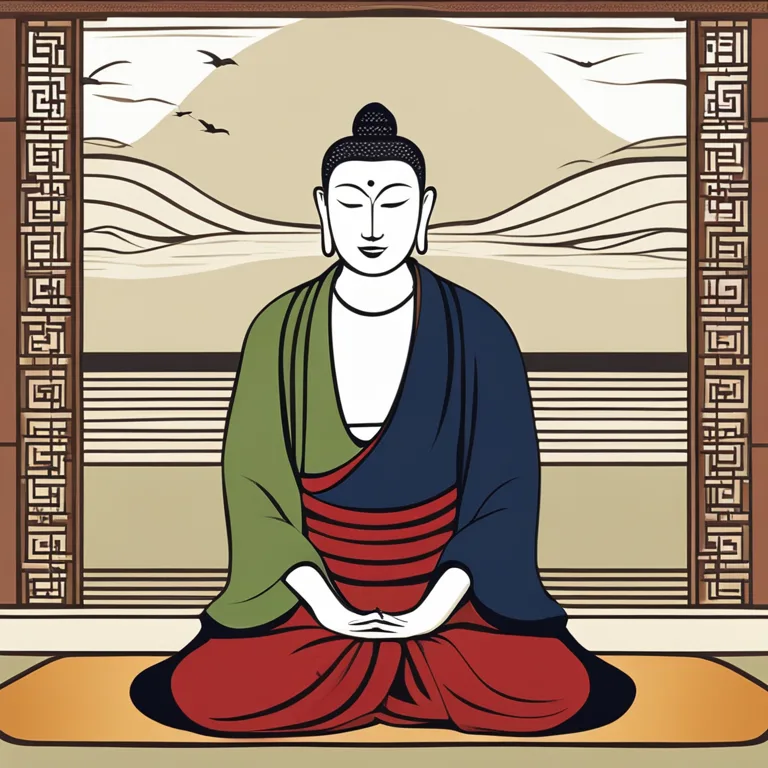
Zen Meditation Guide
Discover Zen meditation techniques to foster tranquility and self-awareness in your daily life.
article by Hina Kurosawa
Introduction to Zen Meditation
Zen meditation, traditionally known as Zazen, is an ancient practice rooted in Buddhist philosophy that emphasizes seated meditation to achieve deep awareness and relaxation. Originating in China as Chan Buddhism and later evolving in Japan as Zen, its core purpose is to calm the body and mind, ultimately leading to insightful self-realization and inner peace. Over the centuries, Zen meditation has transcended religious borders, impacting millions worldwide who seek its mental clarity and simplicity. With its increasing popularity, it’s become a staple practice for those aiming to lead a balanced and mindful lifestyle.

Posture and Environment
The physical foundation of Zen meditation lies in adopting the correct posture. Practitioners usually sit on a cushion or chair, maintaining an erect but relaxed spine, hands resting on the lap or knees, and eyes gently lowered to avoid visual distractions. The setting is equally important; a quiet, clean, and simplistic space reinforces the Zen principle of simplicity. Many individuals find that dedicating a specific area in their home for meditation can deepen their practice and reinforce their intention.

The Breathing Process
Central to the practice is attentiveness to the breath, which serves as an anchor for the wandering mind. Zen practitioners place importance on deep, abdominal breathing — slowly inhaling through the nose, letting the breath fill the diaphragm, and exhaling with equal control. This form of controlled breathing invariably invites a state of mental stillness, essential in Zen meditation for observing thoughts without judgment.

Discovering Silence within Thoughts
Unlike some meditation practices that focus on visualization or mantra chanting, Zen meditation typifies “thinking about not thinking,” known as Mushin or "the mind without mind." Practitioners learn to become observers of their thoughts, allowing them to pass by like clouds in the sky without becoming emotionally involved. This mindful detachment leads to a state of "Silent Illumination," where clarity and tranquility coexist amidst mental activity.

Regular Practice and Discipline
Zen meditation is not a quick-fix solution but rather a lifelong journey requiring consistent practice. Establishing a daily routine, whether for five minutes or an hour, is more beneficial than sporadic lengthy sessions. Over time, discipline in practice will nurture the growth of inner stillness and awareness not only during meditation but also throughout all daily activities.
Integrating Zen into Daily Life
Zen meditation extends beyond the cushion; it is a way of being, a philosophy that can shape one’s approach to life. Practitioners are encouraged to take the mindfulness and calm achieved during meditation and weave it into the fabric of their everyday actions. Be it eating, walking, or engaging with others, Zen stresses doing so with wholehearted presence and awareness — a practice known as “mindfulness in motion.”
Challenges and Adaptability
While Zen meditation appears simple, beginners may encounter challenges such as physical discomfort, restlessness, or a busy mind. It’s important to approach these hurdles with patience and self-compassion. As one's practice deepens, these issues generally subside. Moreover, Zen meditation is adaptable; its principles can be tailored to individual needs, making it accessible to a wide audience regardless of lifestyle or belief system.
Published: 12/20/2023
Modified: 12/20/2023
More predictions
Come back here soon to learn more about yourself and your future


Sport life: Meditation Techniques for Athletes
Learn how meditation can enhance athletic performance, improve focus, and accelerate recovery. Discover key techniques tailored for the physical demands of athletes.


Pregnancy Meditation Techniques
Discover serene and effective meditation techniques tailored for expectant mothers to enhance prenatal wellbeing and connect with their unborn child.


Calming The Mind With Meditation
Discover effective meditation techniques to ease your mind and promote serenity in your daily life.